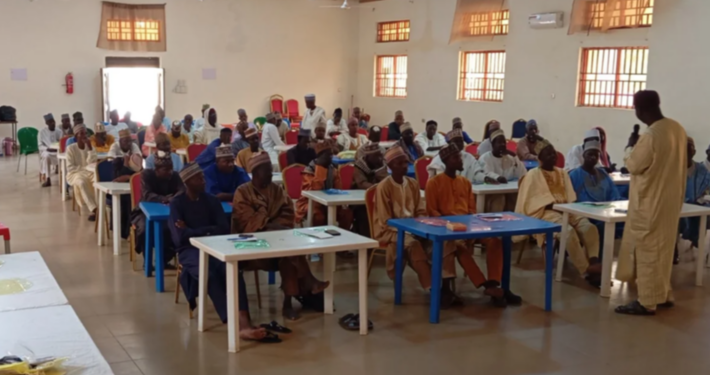UNICEF has trained officials in Kaduna on budget tracking and analysis for education. The officials trained cut across the three zones.
They included heads of departments, officers from various ministries and agencies, local government officials, primary school staff, representatives from the Ministry of Education, directors of planning, and directors of finance, among others.
At the end of the three-day training on Wednesday in Kaduna, Bala Dada, the education officer for UNICEF in Kaduna, stated that the training brought together finance, budget, and planning experts to learn about budget tracking and analysis.
According to him, this is to enable them to report more effectively and make the education sector’s management more effective.
He explained that the training was part of the ‘Reaching Out of School’ project, targeting children in Kaduna, especially those out of school.
Mr Dada stated that the goal was for the finance officers to influence decision-makers to allocate and release budgets more effectively for out-of-school children. He stated that the primary challenge informing the training was the depth of information about educational expenditure.
Mr Dada, however, said that while Kaduna’s budget allocation was one of the highest, local government-level information on education expenditure was not readily available. He urged them to select at least one or two concrete things to learn and apply to their work, expecting to see a change by the next budget cycle.
Yahaya Ibrahim, executive secretary of the Kaduna State Scholarship and Loan Board, said the training was a bottom-up and top-down programme where everyone was involved.
He added, “It is fantastic because everyone who was supposed to be around was around.”
He explained that the training focused on planning budgets, identifying needs, and determining responsibilities.
Mr Ibrahim said, “The participants had learned about the importance of quality teachers, teacher-pupil ratio, and performance indicators.”
He said that the programme was worthwhile and urged the participants to cascade the knowledge down to their younger staff. Mr Ibrahim restated the importance of being nationalistic and considering the impact on future generations.
Vahyala Kwaga, a facilitator at the training, stated that they were providing rigorous, hands-on training and capacity-building to public officials in Kaduna. He added that the training aimed to improve and provide skills in results-based budgeting.
Mr Kwaga explained that the training would enhance education in several ways, ensuring funding is used effectively and efficiently, and promoting transparency and accountability in public administration.
“It will increase the competence and managerial skills of civil servants,” Mr Kwaga said.
He added that Nigeria practices separation of powers, and the legislature’s participation was crucial for effective budget oversight.
“The training will ensure that funds are used in the best way possible to ensure positive impacts for teachers, students, and Kaduna State,” he said.
Nurudeen Ramalan, a participant, stated that the programme was crucial to the educational system, as it enhanced vital activities in teaching and learning. He added that, considering the training, the budget would improve the educational system in the state.
Joshua Yakubu, another participant, stated that he had been trained in planning budgets and incorporating key indicators.
He said that budget planning required carefulness, and the budget must be effective, efficient, and cost-effective.
NAN






































